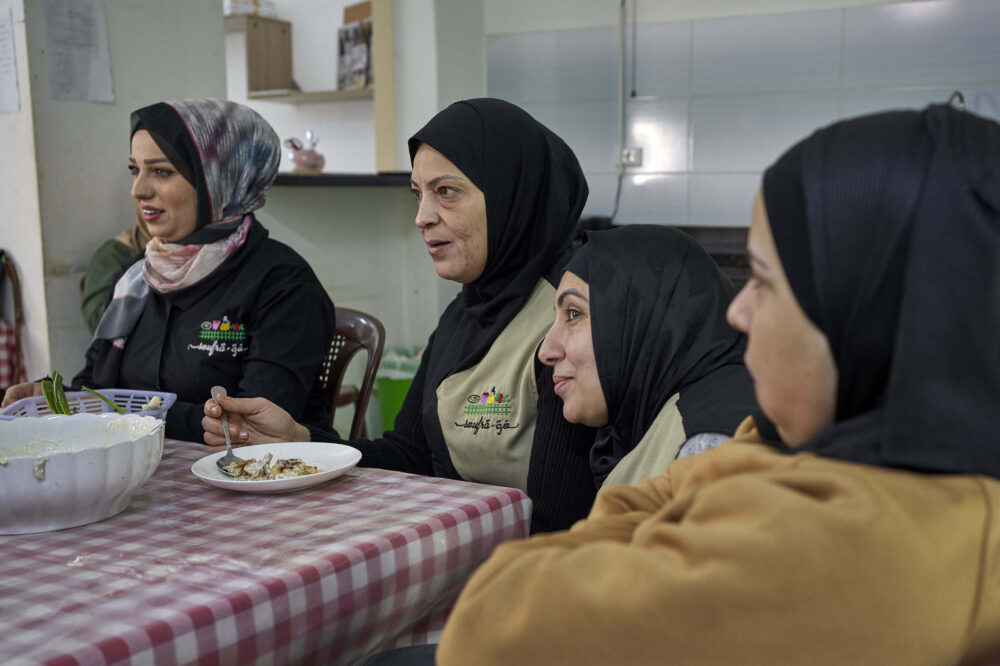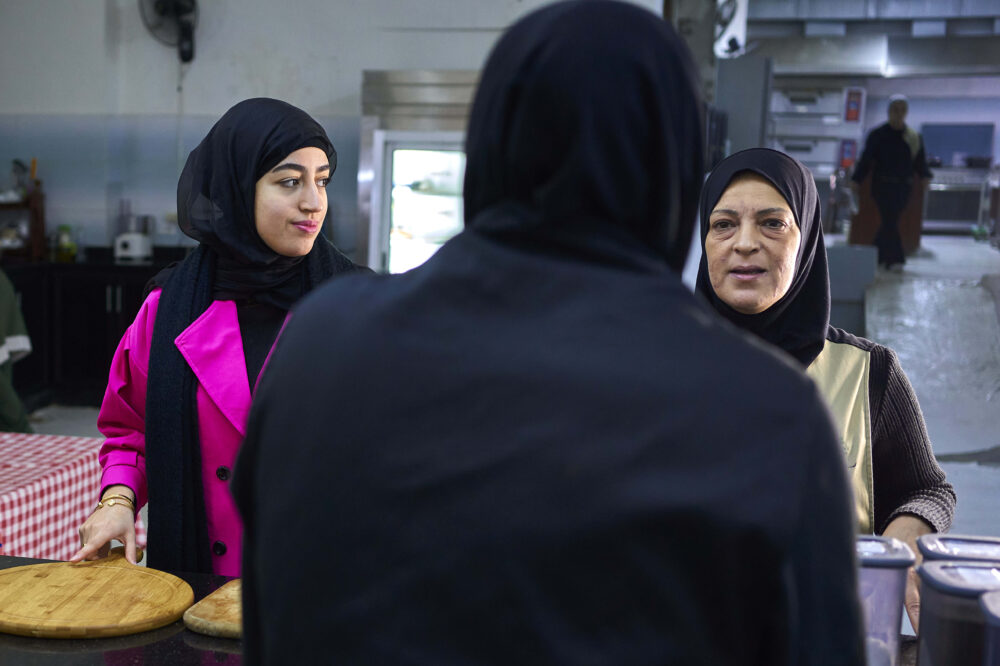The refugee camp Burj El Barajneh is located south of the Lebanese capital Beirut. It covers an area of about one square kilometer, has existed since 1948 and until a few years ago sheltered mainly Palestinian refugees. Since the outbreak of the Syrian civil war, the number of inhabitants has increased from 26,000 to 50,000 - in the same area.
Space is limited, poverty is a feature of everyday life, and conflicts between different communities are increasing.
After the first intervention in 2017, Csf continues its work in the camp. The Soufra cafeteria is aimed at women and their children and is the first and only opportunity to meet in public space within the camp.
Facts
| Project activities | Gastronomic training as well as construction and operation of the first community restaurant and meeting place for women in the camp. |
|---|---|
| Project goals | Female empowerment: Increasing the economic opportunities for women and their families and strengthening the sense of community through regular exchanges between women from different backgrounds. |
| Beneficiaries | 40 women as employees of the cafeteria. All women and their children from Burj el Barajneh Camp as guests and participants in events in the cafeteria. |
| Running time | Since 2020 |
The refugee camp Burj El Barajneh is located south of the Lebanese capital Beirut. It covers an area of about one square kilometer, has existed since 1948 and until a few years ago sheltered mainly Palestinian refugees. Since the outbreak of the Syrian civil war, the number of inhabitants has increased from 26,000 to 50,000 - in the same area. Space is limited, poverty is a feature of everyday life, and conflicts between different communities are increasing.
After the first intervention in 2017 Csf continues its work in the camp. The Soufra Cafeteria is aimed at women and their children and is the first and only opportunity to meet in public space within the camp. Women are particularly restricted in the camp: They are not allowed to be in places where men go. Meetings outside the family are only possible in the narrow, private rooms.
At the same time the company creates work and training opportunities. The existing Soufra Catering will be integrated and will also produce in the new, larger kitchen. This in turn will enable more and larger catering orders and provide more jobs for women. The cafeteria therefore helps to foster community in the refugee camp and significantly improve the living conditions of all camp residents.
The foundation fokus frauen (2021) generously supports this project.
Facts
| Project activities | Gastronomic training as well as construction and operation of the first community restaurant and meeting place for women in the camp. |
|---|---|
| Project goals | Female empowerment: Increasing the economic opportunities for women and their families and strengthening the sense of community through regular exchanges between women from different backgrounds. |
| Beneficiaries | 40 women as employees of the cafeteria. All women and their children from Burj el Barajneh Camp as guests and participants in events in the cafeteria. |
| Running time | Since 2020 |











